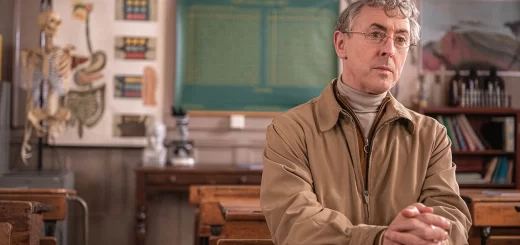BP’s Top 100 Challenge #43: Metropolis, by Sarah Brinks
I decided to undertake a movie challenge in 2017. This seemed like a good way to see some classic movies that I have unfortunately never seen. The Battleship Pretension Top 100 list provided such a challenge.
The last time I watched Metropolis was in my early film history class in college. I didn’t really like it as much as other silent films we watched in that class. In 2008 when they had found the missing footage and restored a nearly complete version of the film I was curious to see if I liked it better when it was complete. It turns out I had almost no memory at all of this film and was really delighted to see the fully restored version.
As I mentioned, I was surprised by how little I remembered of this film. I think my brain had put Metropolis and Faust in a blender and I was remembering them as one mixed up film. So watching it this time felt like the first time, especially with the additional footage. There used to be a large section that was just cards describing the lost footage and now you have it all put together at last.
The restoration of the film is gorgeous. The recently found grainy and dark footage was well integrated with the rest of the footage. The images are incredibly sharp and clear. I was really blown away by the quality of the picture. There are a few special effects scenes in the film and even though they are a little corny they look great and add charm to the film.
The acting is over the top the way silent film acting always is but it works with the over the top plot elements of Metropolis. Gustav Frӧhlich is wonderful as the young Joh Frederson but the standout in the film is Rudolf Klein-Rogge as Rotwang the evil scientist. I admired his motivation of loving Joh Frederson’s dead wife and blaming Frederson for her death. I also loved the way her chewed the scenery. It was almost too much but it treads the right side of the line for me. My one complaint is with Brigitte Helm when she plays the evil robot twin. I know she needs to convey that she is evil, but she goes way too far. There is also something in her body movement that I don’t like. It isn’t anything tangible, I just didn’t respond to it, though I have to give her a lot of credit for the stunt near the end when she dives off the stairs and grabs the bell rope and swings up and down. It looked amazing and incredibly dangerous.
The scale of the film is truly an amazing feat. The scene of the large machines and the transformation into a monster with slaves is impressive. As is the scale of the city of Metropolis. It is easier to tell they used a model at the end when the lower part of the city is crumbing but it still works well visually. And the film makes the most out of its huge set pieces. The scene when the workers are moving back and forth on the big machine then dancing in front of it as it blows up at the end was really amazing. As was the sheer size of the cast. The director, Fritz Lang, filled his frame with huge casts of workers, and children, and socialites.
My major complaint I have is with the length. While it is great to have the full story cut back together it is a big ask at over two and a half hours. I did have to watch it in sections because watching it all at once was too much. I did have the surreal experience of watching the city on screen flood during a torrential rain storm so the real life weather added an interesting element to my viewing of the end of the film. If you haven’t taken the time to watch the restored version I highly recommend taking the considerable time to watch it. It really is worth it.
I’ve decided to rate each film using an arbitrary scale based on the board game Battleship (lowest: Destroyer, Submarine, Cruiser, Battleship, highest: Carrier)
Metropolis ranking: Battleship































